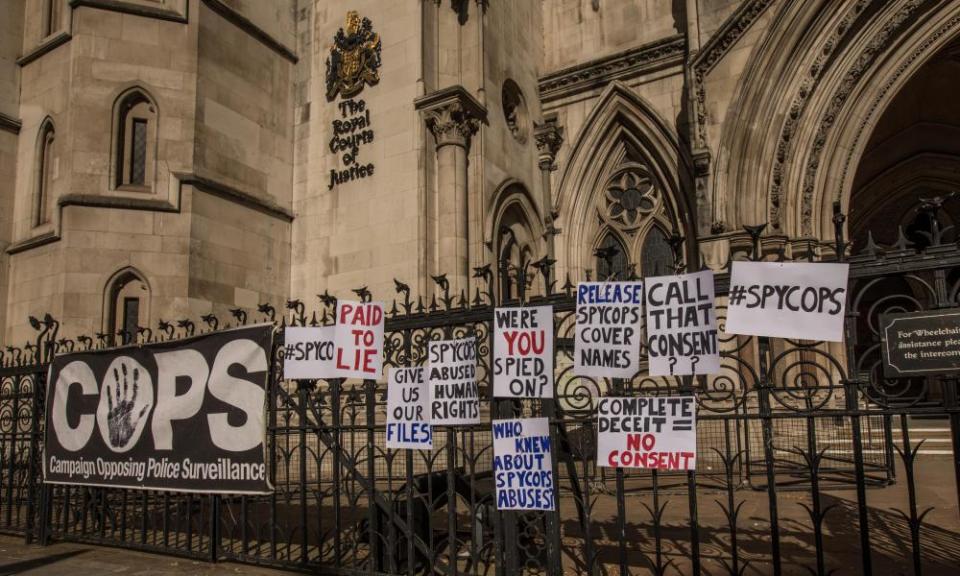Police spies inquiry: five officers allowed to give evidence in secret

Five undercover police officers who infiltrated political groups in the 1970s and 1980s have been allowed to give evidence in secret to a public inquiry, leading to accusations that police are being allowed to cover up any wrongdoing.
They include two officers who admit that they had sexual relationships with women using their fake identities during their deployments. It appears that the secrecy will prevent those women from finding out what happened to them.
The decision to allow the undercover officers to give their evidence behind closed doors has been taken by Sir John Mitting, the retired judge leading the inquiry.
Victims of the surveillance have persistently accused Mitting of cloaking the inquiry in secrecy.
The long-running inquiry has been given the task of examining the activities of 139 undercover officers who spied on more than 1,000 political groups for more than four decades from 1968.
The government was forced to set up the inquiry in 2014 after a series of revelations about how the undercover officers monitored grieving families, deceived women into long-term sexual relationships and stole the identities of dead children.
Last year, the inquiry began to hear evidence in public, focusing on the earlier deployments between 1968 and the 1980s.
Related: Secrets and lies: untangling the UK 'spy cops' scandal
A series of undercover officers have been questioned in public sessions, although it has now emerged that five have recently given evidence in private.
The reasons for the secrecy are often opaque. Mitting has ruled for example that the former officers are too ill or would be put in some kind of risk.
One of the officers infiltrated leftwing groups in the 1970s and had a sexual relationship with a woman involved in the group. Mitting accepted that the “nature of the deployment” had put the former spy at risk.
Another officer infiltrated leftwing and anti-racist groups in the 1970s and 1980s. He has said that he “engaged in occasional sexual encounters with two women whilst deployed”. He said the two women attended an evening class that he went to while using his fake identity and were not involved in the groups he infiltrated. He argued that giving evidence in public would exacerbate his poor mental health.
Mitting has previously said that women who had sexual relationships with undercover officers have a compelling moral claim to know the identity of the officer. However, in both of these cases, he decided that the reasons for secrecy were stronger than those for allowing the women to discover the identities of the men they had sex with.
Lois Austin, one of those who was spied on during the undercover operations, said: “As far as we are concerned this is all about the police trying to protect senior officers. By contrast, when evidence is given live we get remarkable insight into the institutional sexism and racism of these state-sanctioned units.”
Mitting has said that the inquiry aims to be as open and transparent as possible, but that secrecy was granted for a series of reasons – for example, disclosure could put individuals at “serious risk of injury, or in extreme cases, death, because of the nature of the deployments they have undertaken”, or damage their or their family’s private life in contravention of their human rights.

 Yahoo Finance
Yahoo Finance 